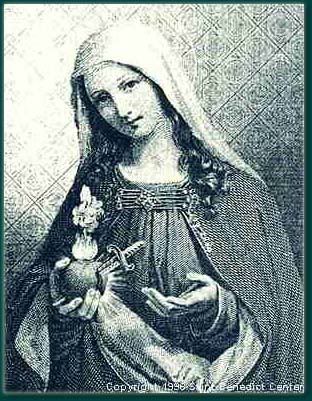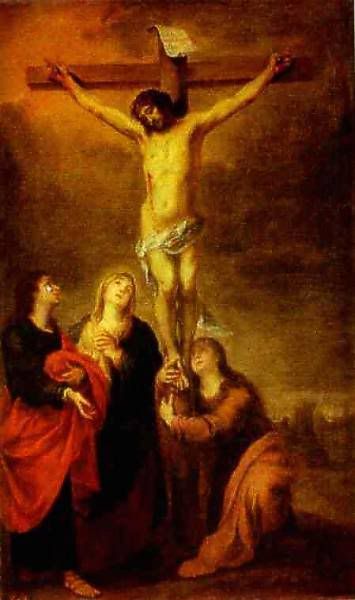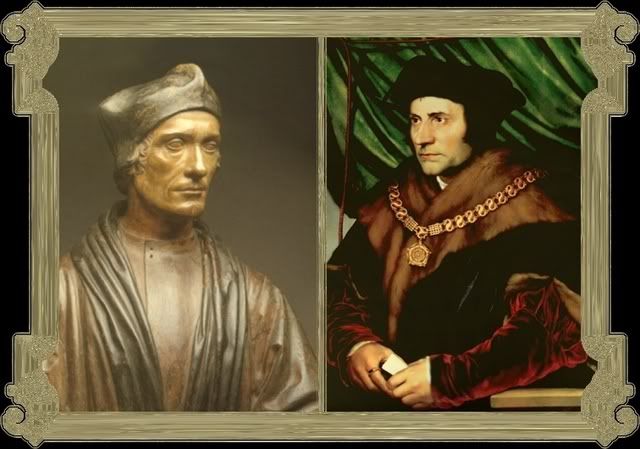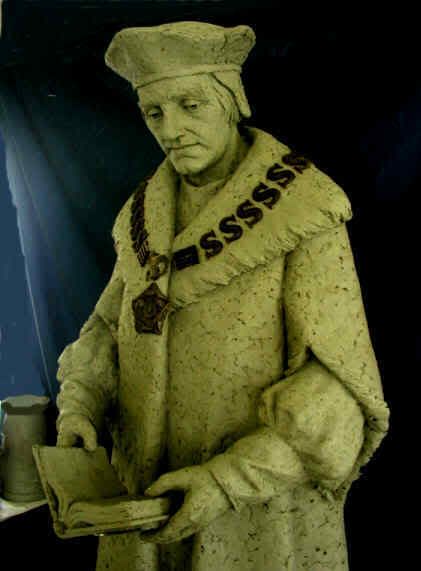Saturday, June 27, 2009
Our Blessed Lady's Saturday

PRAYER TO THE MOST PURE HEART OF MARY
O Heart most pure of the Blessed Virgin Mary,
obtain for me from Jesus a pure and humble heart.
Sweet Heart of Mary, be my salvation.
Blessed Virgin, who didst keep in thy heart the
precious treasure of the words of Jesus thy Son and,
pondering over the sublime mysteries therein contained,
couldst only live for God, how I am confounded by the
coldness of my heart! Ah, dear Mother, obtain for me the
grace of meditating always on the holy law of God and of
seeking to follow thine example in the fervent practice
of all the Christian virtues.
Sweet Heart of Mary, be my salvation.
Our Father once and Hail Mary seven times
Labels: Our Blessed Lady
Friday, June 26, 2009
Saint Josemaria Escriva de Balaguer
One of the misfortunes of being a traddie is being locked into the Ordo circa 1962, which prevents saints recently canonized like Saint Josemaria and Saint Padre Pio from being liturgically recognized.
![]()
Saint Josemaria's little guide to spirituality, The Way, ought to be on every Catholic bookshelf, right next to The Imitation Of Christ and The Glories Of Mary.
Saint Josemaria's little guide to spirituality, The Way, ought to be on every Catholic bookshelf, right next to The Imitation Of Christ and The Glories Of Mary.
Labels: Our Saintly Brethern
Friday At the Foot Of the Cross

Remember, O Jesus meek and humble of Heart, that, in what need soever, no one, who had recourse to Thy most loving Heart, was ever rejected or sent away empty. Animated with such a confidence, O Jesus, I come to Thee: burdened with miseries, I fly to Thee, and, with my miseries, I throw myself on Thy Heart. Do not, O my God, my Father, cast off me, Thy all-unworthy child, but give me admittance, I beseech Thee, into Thy Heart; nor suffer me ever to be separated therefrom. Aid me, I entreat Thee, in all my wants, now and forever, but, above all, at the hour of my death, O most benign! O most compassionate! O most sweet Jesus!
Labels: Friday At the Foot Of the Cross
Tuesday, June 23, 2009
Vigil Of the Nativity Of Saint John the Baptist
Also known as Midsummer Day's Eve.

St. John the Baptist before Herod
from the Petite Heures du Jean, Duc de Berry
The Church typically celebrates saints on the anniversary of their entering into eternal life. Only three persons' nativities are celebrated.
The Nativity of our Lord, of course is the second most important feast of the year(Christmas). We celebrate His Nativity, of course, be cause He is God the Son, and the Redeemer of all mankind.
The Nativity of the Blessed Virgin Mary is celebrated on September 8th, though it does not generate a great deal of devotional attention. We celebrate her nativity because she was the ark of the new covenant, and the only woman conceived without the stain of original sin.
And St. John the Baptist's nativity on June 24th has always been more popular, because it is one of those natural coincidences between the celebration of the natural year, and the Christian calendar. We celebrate St. John the Baptist's nativity because he was sanctified in his mother's womb, when Our Lady visited her and St. John leapt in joy inside her.
It is close to the longest day of the year (the summer solstice), as Christmas is close to the shortest. It was typically celebrated in medieval times with Mass, bonfires, rolling flaming cart wheels downhill, public feasting, flower garlands, gathering of herbs (especially St. John's Wort), and religious processions.
And most of the jollification took place on the Eve of St. John's Nativity, which would be tonight. Most holydays were celebrated as wakes, with the merrymaking beginning the evening before, just as we today consider Christmas celebrations to have begun after the first Mass for Christmas (4pm on Christmas Eve).
Also, like Christmas, it is a "quarter day," when quarterly rents and other obligations were due. The Quarter Days are March 25th (Lady Day) June 24th (Midsummer Day) September 29th (Michaelmas), and December 25th (Christmas).
Andrew at The Shrine of the Holy Whapping has more on St. John's Eve customs.

St. John the Baptist before Herod
from the Petite Heures du Jean, Duc de Berry
The Church typically celebrates saints on the anniversary of their entering into eternal life. Only three persons' nativities are celebrated.
The Nativity of our Lord, of course is the second most important feast of the year(Christmas). We celebrate His Nativity, of course, be cause He is God the Son, and the Redeemer of all mankind.
The Nativity of the Blessed Virgin Mary is celebrated on September 8th, though it does not generate a great deal of devotional attention. We celebrate her nativity because she was the ark of the new covenant, and the only woman conceived without the stain of original sin.
And St. John the Baptist's nativity on June 24th has always been more popular, because it is one of those natural coincidences between the celebration of the natural year, and the Christian calendar. We celebrate St. John the Baptist's nativity because he was sanctified in his mother's womb, when Our Lady visited her and St. John leapt in joy inside her.
It is close to the longest day of the year (the summer solstice), as Christmas is close to the shortest. It was typically celebrated in medieval times with Mass, bonfires, rolling flaming cart wheels downhill, public feasting, flower garlands, gathering of herbs (especially St. John's Wort), and religious processions.
And most of the jollification took place on the Eve of St. John's Nativity, which would be tonight. Most holydays were celebrated as wakes, with the merrymaking beginning the evening before, just as we today consider Christmas celebrations to have begun after the first Mass for Christmas (4pm on Christmas Eve).
Also, like Christmas, it is a "quarter day," when quarterly rents and other obligations were due. The Quarter Days are March 25th (Lady Day) June 24th (Midsummer Day) September 29th (Michaelmas), and December 25th (Christmas).
Andrew at The Shrine of the Holy Whapping has more on St. John's Eve customs.
Labels: Our Saintly Brethern
Monday, June 22, 2009
Saints Thomas More, and John Fisher, Martyrs

June 22nd is the feast of Saints John Fisher and Thomas More, the two most prominent Catholic men martyred by King Henry VIII, of evil memory.
Both were high and respected officials in the court of Henry VIII, and both refused to accept King Henry as head of the Church in England. Both were beheaded for their orthodoxy.

For Saint Thomas More, who most know through the magnificent portrayal by Paul Scofield (who dies in the last 20 months) in the 1960s film adaptation of Robert Bolt's play A Man For All Seasons, I offer my very slight adaptation of a prayer More wrote while a prisoner in the Tower of London in 1534, some months before he was martyred.
Give me the good grace, Lord,
To set the world at naught.
To set my mind fast upon Thee
To not hang upon the blast of mens' mouths.
To be content to be solitary.
To not long for worldly company.
To be concerned with the world less and less.
To rid my mind of all the world's busy-ness.
To not long for any worldly things.
To deem unpleasant even hearing the fantasies of the world.
To be gladly thinking of God alone.
To call piteously for His help.
To lean upon Him for comfort.
To labor busily to love Him.
To know my own vileness and wretchedness.
To make myself meek and humble under the mighty hand of God.
To bewail my past sins.
To suffer adversity patiently for the purging of them.
To bear gladly my Purgatory here.
To be joyful of tribulations.
To walk the narrow way that leadeth to life.
To bear the Cross with Christ.
To have the last things always in remembrance.
To have my ever-possible death always before my eyes.
To make death no stranger to me.
To foresee and consider the everlasting fire of Hell.
To pray for pardon before the Judge comes.
To have continually in mind the Passion that Christ suffered for me.
To give Him thanks continually for His benefits.
To redeem the lost time that I have wasted.
To abstain from vain discussion.
To eschew light and foolish mirth and merriment.
To cut off unnecessary recreations.
To set the loss of worldly substance, friends, liberties, and life, at naught,
If their loss means the gaining of Christ.
To think my worst enemies my best friends,
For the brothers of Joseph could never have done him so much good
With their love and favor as they did with their malice and hatred.
These attitudes are more to be desired by every man than all the
Treasure of all the princes and kings, Christian and heathen,
Were it all gathered and laid together upon one heap.
Amen.
I also ask you to examine Jay's tribute to Saint Thomas More, with its excellent links.

For Saint John Fisher, who had been chaplain to the Queen Mother before becoming a bishop (he was the only English Catholic bishop who refused to take the Oath of Supremacy) I can only advert your attention to his wonderful Exposition Of the Seven Penitential Psalms, which belongs on the shelf of every Catholic with a desire to repent for his sins through the Penitential Psalms. The Ignatius Press editon, which I read a year and a half ago, and plan to read again soon, is both faithful to the letter of the original and wonderfully graspable for the modern reader.
Labels: Our Saintly Brethern






































































































